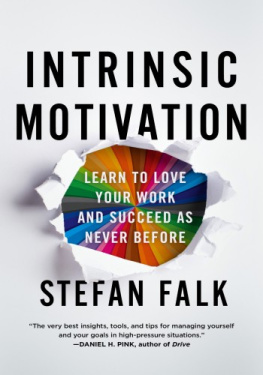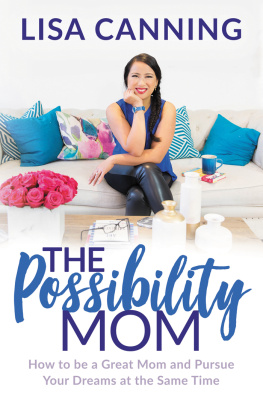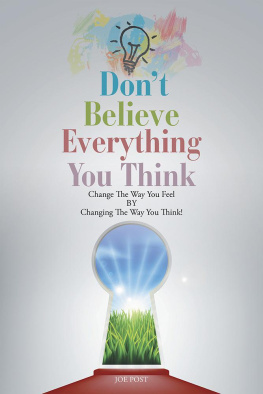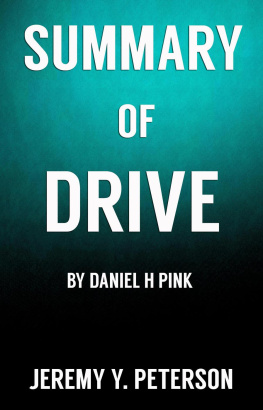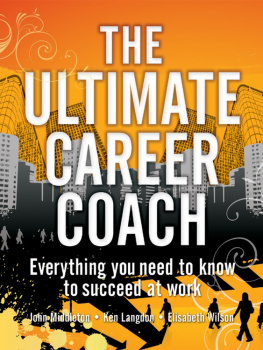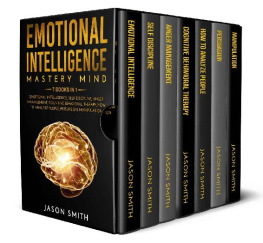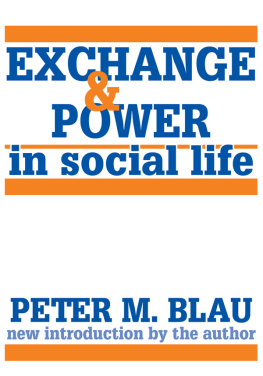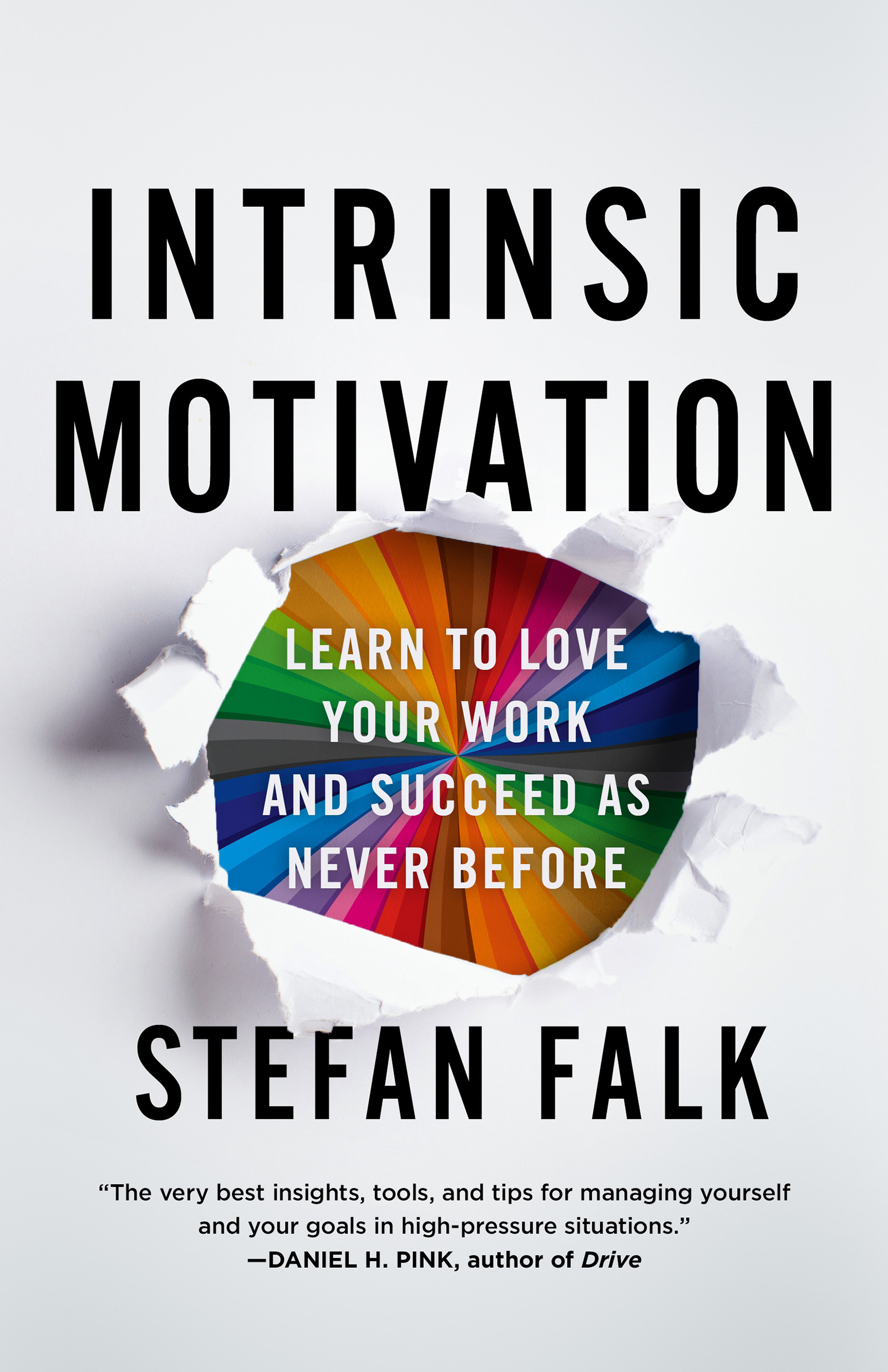Contents
Guide
Pagebreaks of the print version

The author and publisher have provided this e-book to you for your personal use only. You may not make this e-book publicly available in any way. Copyright infringement is against the law. If you believe the copy of this e-book you are reading infringes on the authors copyright, please notify the publisher at: us.macmillanusa.com/piracy.
Dedicated to Geddy Lee, Alex Lifeson, Neil Peart, Ian Paice, Jon Lord, Roger Glover, Ritchie Blackmore, Ian Gillan, David Bowie, Zeb Macahan; the love of my life, Regina; and my son, Ramses
Always be yourself unless you can be Hanuman,
then always be Hanuman.
It is virtually impossible to write an acknowledgment that fully describes what has made this book possible. So many moments, so many people, have contributed to it. Obviously, I owe a huge debt of thanks to all the thousands of people I have worked withcolleagues, direct reports, and clients. By inviting me to help you with your challenges, all of you have offered me opportunities to learn and grow, and by that you have all contributed to this book.
But I am also grateful for what I view as one of the most important things in life: all of my own challenges, hardships, and failures, especially as a little overweight kid with no friends and a father who scared me stiff. I am thankful for all the people who have challenged me over the years, even those who tried to set me up for failure or tried to hurt me in other ways. All of that has made me a stronger, more self-aware person who thrives on taking on the impossible (which I have repeatedly learned nothing is). These personal qualities have contributed to the choices I have made personally and professionally. They have also enabled me to develop what has been completely decisive for all my activities and adventures in life, including my coaching practice and the contents of this book: a focused but creative brain, which lives its own life.
My brain has an amazing ability to project the future and envision any end state, whether it is clients becoming the best at what they do or me taking on a completely new area I am clueless about but nonetheless succeeding at. My brain always comes up with a road map for reaching a good outcome. It is almost as if there is no problem related to my own or other peoples dreams, performance, mental well-being, and success my brain cant crack.
One persons decision has been extremely important for my being able to write this book. For some reason that I still cant completely understand, my mom made up her mind to rent me a piano when I was eight. We had not talked about me playing a musical instrument before. Maybe shed noticed how much I enjoyed it when my uncle sang and played the guitar for me, or how much I liked to play her recordsI can still remember playing Lynn Andersons (I Never Promised You A) Rose Garden and Elviss Love Me Tender repeatedly. Playing the piano made me realize at an early age that the activity itself does not matter; it is how you think about it that makes you love it or not. This is the basic premise of not only this book but my entire life.
When I got older, three people contributed even more to who I am, what I do, and the tools and principles of this book. My mentor for many years, Mihaly Csikszentmihalyi, who passed in 2021, played an extremely important role in my life. What Mihaly did not know about the human condition, how we evolve, and what makes human existence a blessing is not worth knowing. Mihaly was a true scientist, meticulous about backing up all his insights with facts and research. His intelligence and ability to see things clearly were never intimidating, but could be irritating at times, especially when I thought I had come up with something really smart, only to realize that he had already thought of it. Anyone who wants to evolve and get as much out of life as possible should read Mihalys work.
Another person who played an important role for me is John Douglas, the former FBI agent and a pioneer in criminal profiling. The first time we met, he showed me crime-scene photos, analyzing each scene and telling me what he saw in them that revealed the perpetrators motives and behavior. After a while, he said, Now it is your turn. He clicked on a slide and asked, What do you see? The photo was of a corpse lying on the ground. I zoomed in on what seemed to be the murder weapona rock as big as a hand that had a lot of blood on it. I said, It looks like the murder was not premeditated or planned, because if the rock was the murder weapon, it was most likely a weapon of opportunity. You dont plan to murder someone with a rock. John looked at me, smiled, and said, Good, you know your stuff. I didnt yet, but I went on to learn a lot from him, especially how to understand the true motives behind peoples words and behaviors.
The third person is Johan Ahlberg, senior partner at McKinsey & Company, where I worked as a consultant. Johan gave me feedback on my development and performance. His typical message, which he delivered with clarity and appreciation almost every time we met, was Stefan, youre doing well, but you are performing at about fifty to sixty percent of what you should be doing, and this is what you could do to improve. At the beginning, I thought that Johan was nuts, given that even before joining McKinsey I was, in comparison to most people I had met, constantly improving. But after a while I realized how cleansing and conducive to your development it is to be brave enough to focus on your shortcomings and how you can always do things better. Johan helped me up my game. He still does.
I would also like to thank two people who are close to me. One of them is my son, Ramses. In many ways, he is the inspiration for this book. He is a hard worker who follows his own convictions and path. His ability to always smile and have a positive outlook is admirable. Ramses is a true people person. He is helpful and supportive toward his friends, and I have never, ever, heard him say a negative thing about another human beingsomething I cant say about anybody else. That is inspirational, especially since he is only twenty-four and grew up at a time when negativity is the norm for most people.
The second is Regina, the love of my life, whose sheer number of abilities is inspirational. Her ability to stay true to a deeper purpose in life, cultivate good intentions and deeds personally and professionally, while constantly being one of the best at what she doesand in a sector of the business world where greedy men rule, and integrity is a word but not a practicesimply blows my mind. She is living proof of everything this book is about.
Finally, I want to thank the many people who contributed to the actual work with this book. Fifty-plus people read the manuscript (or parts of it) at early stages and gave me feedback that spurred its evolution. Through his coaching and editing, Josh Bernoff helped me come up with the original idea and structure for the book, including its proposal. Arthur Goldwag, with his sharp mind, unique ability to understand me and my thinking, and razor-sharp editing, helped make the final manuscript more crisp, clear, and logical.
But the person who had the most decisive impact on the final manuscript is Tim Bartlett, my editor at St. Martins. He has step-by-step coached me to bring out things that needed to be in the bookthings I did not think about since they are so ingrained in me by habit, but that were nonetheless critical to write about. Thanks to Tims unceasing efforts, this is a more complete and helpful book. Thank you!


